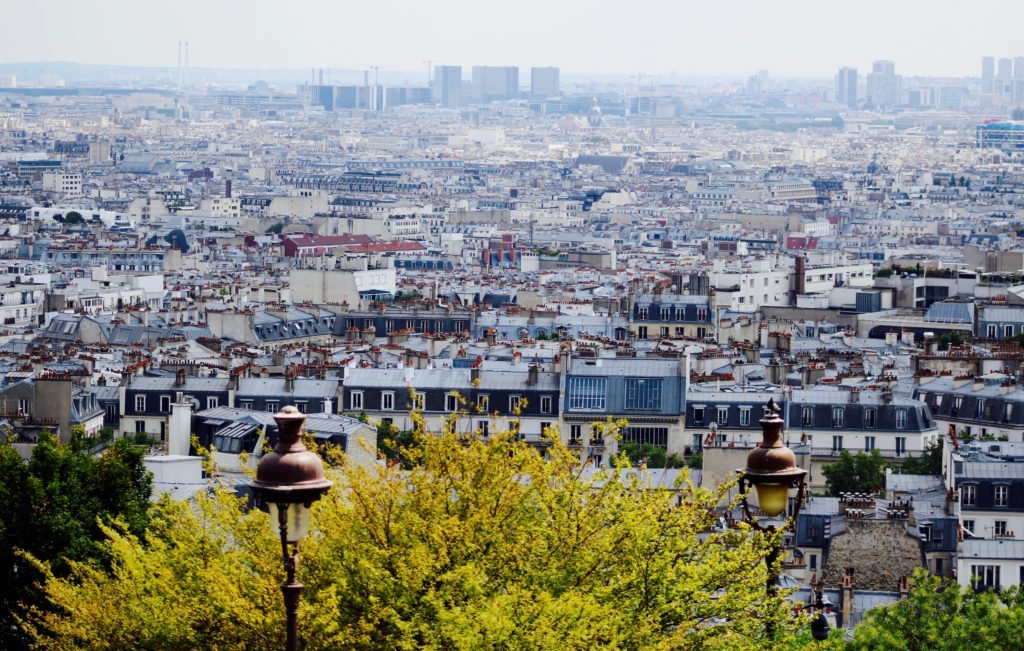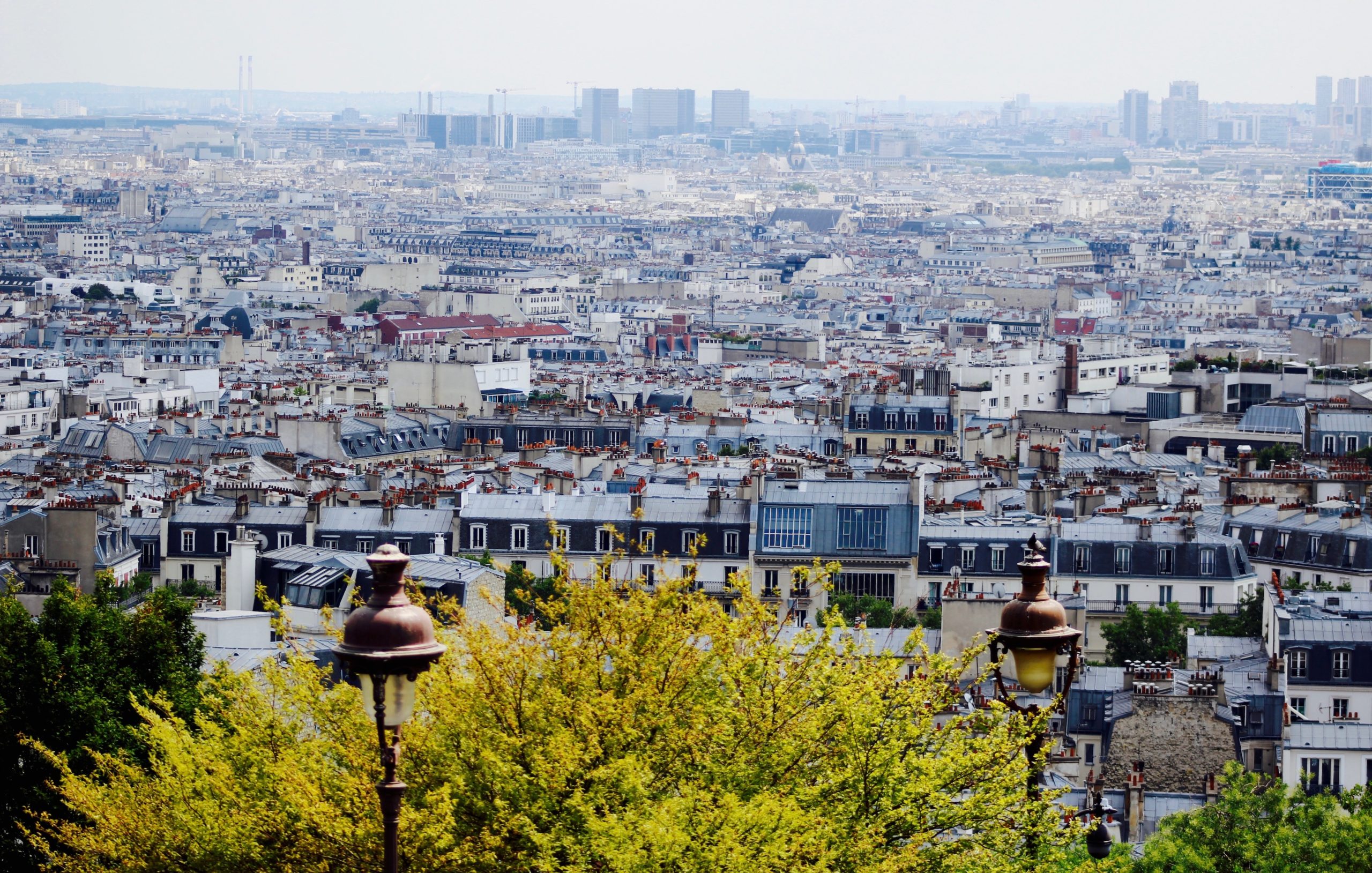By Yaldaz Sadakova

Someone recently asked me to rate my affiliation with all my ethnic and national identities. The scale was from 0 to 100.
It’s hard to put a number on these things, but I said 10 for Turkish, 50 for Bulgarian, 50 for Canadian and 60 for EU.
Then I realized I’d forgotten an identity—common humanity. I rated my allegiance to that at 100.
My ties to my ethnic and national identities have always been loose and complicated. I’ve always felt like a nomadic soul, a global citizen.
Even before that conversation, I had thought about the concept of global citizenship—about who is considered a global citizen and what the qualities of a global citizen are.
But that particular conversation clarified things for me. It helped me understand what bothers me about the current global citizenship definitions.
If you Google “global citizen,” you’ll see lots of simplistic listicles which try to define global citizenship without much success.
Many of these definitions, which come from a white Western lens, focus on qualities that smack of elitist expat stuff.
They place excessive emphasis on travel experience. Things like taking gap years abroad. Doing internships and university exchanges abroad. Traveling frequently. Vacationing in destinations which aren’t touristy. Being an early adopter kind of traveler.
Travel is great, of course. I would never argue against travel, although I don’t support poverty tourism.
But travel does require money and the right passport.
Also, for many people who can afford it, travel is a status symbol and an opportunity to show off. Please see how worldly and fun I am!
Please check out the photos of me eating ethnic food in local restaurants, posing in front of landmarks, socializing with locals or other expats, hiking in pristine forests, visiting slums recreationally to gawk at poor people.
It’s about bolstering your ego as a well-traveled adventurous person who lives life to the fullest.
This attitude is an extension of the fact that the entire globe is the playground for people who have the money and the passports to travel—a privilege they rarely acknowledge.
If definitions of global citizenship emphasize being well-traveled, then the only people who can be considered global citizens are those with financial and passport privileges.
These definitions exclude a huge portion of the global population: poor people from low-income countries with shitty passports.
In addition to emphasizing frequent travel, global citizenship definitions often focus on irrelevant qualities.
Qualities I’ve seen listed include cooperation, problem-solving skills, technology skills, creativity, adaptability, flexibility, resourcefulness, time management, confidence, community organizing and leadership.
But global citizenship isn’t a job!
Plus, having these skills doesn’t necessarily make someone a global citizen.
And, similar to the focus on travel, many of these qualities imply socioeconomic advantages.
Tech-savvy implies access to gadgets and technology. Leadership implies access to certain resources and social networks. And so on.
I want to see a definition of global citizenship which includes people like me.
Because while I am creative, adaptable, resourceful and cooperative, I haven’t traveled much. And until not long ago, my passport was mostly worthless.
I have lived in four countries and seven cities, but I have taken only four vacations abroad in my entire life of 38 years. That’s all I’ve been able to afford.
I’m not a frequent flyer, though I would love to be.
Rejection of Nationalism
Global citizenship should be primarily about mindset, rather than about experiences and skills which can be obtained only because of privileges.
To me, the most important quality of the global citizen is that their strongest allegiance is to their humanity. Not to their nationality. Or to their race, religion or ethnicity.
As the singer Azam Ali notes, “Our allegiance to our humanity should always be placed above our allegiance to our country and religion. It is only in this way that we will be morally incapable of committing crimes against one another which are justified by our beliefs.”
This means that the global citizen rejects nationalism.
Because nationalism asks you to identify first and foremost with your nation, with your own kind, with your own people.
It also asks you to equate one nation with one language, one race, one ethnicity, one religion, one randomly drawn set of political borders.
To the nationalist, the profile of who fits in is very narrow.
Thus, nationalism divides people into insiders and outsiders.
It makes you believe that the outsiders are inferior, giving you an unfounded sense of superiority about your people, the insiders.
Nationalism cultivates this superiority complex through misinformation and the whitewashing of history.
And through paranoia. If you’re a nationalist, you’re convinced other people and other governments are out to get you and your country, so you obsess about border security, policing and military strength.
This mindset pits you not only against people from other countries, but also from people within your own country who belong to ethnic, racial and religious minorities.
Nationalist ideology sees minorities as outsiders who need to be eliminated or assimilated.
One of the nationalist’s perennial fears is that minorities will one day outnumber the majority.
This is something I know a lot about.
Growing up in Bulgaria, my country of birth, I never felt truly Bulgarian, because it was always drilled into my head that I wasn’t.
My teachers, textbooks, the government and popular culture told me repeatedly that being a true Bulgarian meant having a Bulgarian name, a Bulgarian ethnicity, a Bulgarian mother tongue and Eastern Orthodox Christian faith.
I had none of these. I’m ethnically Turkish and grew up Muslim. My mother tongue is Turkish.
In the mid-1980s, when I was two, Bulgaria’s Communist regime banned the Turkish language and the practice of Islam as part of an oppressive assimilation campaign against the country’s Turkish minority.
The regime also forcibly changed our Turkish names to Bulgarian ones.
The goal was to create a “pure” nation, 100 percent ethnically Bulgarian.
In the late 1980s, the regime also expelled 360,000 Bulgarian citizens of Turkish ethnicity to neighboring Turkey. This has since been recognized as ethnic cleansing.
When Communism collapsed in 1989, those of us who had remained in Bulgaria got our Turkish names and Muslim religion back.
However, I didn’t start to feel a greater sense of acceptance and belonging in Bulgaria.
Culturally, I did identify as Bulgarian. I felt more Bulgarian than Turkish, in fact.
But I knew that to many people in Bulgaria, I would never be Bulgarian enough.
I was also aware that to my Turkish relatives in Turkey, I wasn’t Turkish and Muslim enough.
To this day, I am not Turkish enough for many Turkish people in Turkey. (I no longer consider myself Muslim.)
And I’m still not Bulgarian enough for many Bulgarians.
The sad reality is that those of us who have mixed or minority heritage, who may or may not have been born within certain political borders, are never enough when seen through a nationalist lens.
And I guess I will never be Canadian enough, although I live in Canada, and I recently became a Canadian citizen.
Canada has been good to me in many ways. But just like I reject Bulgarian nationalism, I reject Canadian nationalism too.
You won’t see me waving the Canadian flag, wearing Canadiana T-shirts or using a maple leaf picture as my profile photo.
I don’t like the idea of saying “proud to be Canadian” or “proud to be Bulgarian.”
Why proud? It’s just an accident of birth.
Even when you become a naturalized citizen, there’s a degree of luck and, in certain instances, inherited advantage.
So then, why proud? You’re proud of the fact that for reasons beyond your control, you happened to be born on this patch of earth and not that, among this group of people instead of another?
Plus, every single country has its shameful aspects, and national pride asks you to dismiss those.
I know Bulgaria’s shameful past and present, and I’m not proud of those.
I’m not proud of the oppression that took place under Bulgaria’s Communist regime.
I’m not proud of the fact that more than 30 years after the collapse of Communism, minorities in Bulgaria—especially the Roma and LGBTQ+ folks—continue to face individual and systemic discrimination.
I know about the shameful past of Canada too.
I know that the creation of Canada occurred through the dispossession and genocide of Indigenous people.
I know that Canada happened because European colonizers came here, stole the land of Indigenous people and made systematic efforts to erase them.
I know that even today, Indigenous people here continue to face grave injustices.
I don’t feel proudly European either.
As an EU citizen, I do feel a sense of belonging to a common, border-free area. In fact, I feel a greater sense of belonging to that common, border-free Europe than to a Canadian or Bulgarian identity.
There are many things I appreciate about Europe.
But I can’t ignore the fact that lots of these things exist because of colonialism.
I can’t ignore present-day inequities in Europe either.
I can’t ignore the fact that non-white Europeans of Muslim descent aren’t seen as European enough. Even when they were born and raised in Europe, they’re otherized and considered immigrants.
I can’t ignore the fact that Eastern Europeans are treated like the step-children of Europe. Like vermin that need to be contained, because Western Europeans have this baseless fear that we will overrun their countries, steal their jobs and bankrupt their welfare systems.
I can’t ignore the fact that the Roma minority faces staggering levels of unemployment and poverty across Europe due to deeply-rooted racism.
I can’t ignore the fact that while the EU is a border-free space for its own citizens, it remains a fortress to non-EU nationals. Non-EU nationals are being punished because they weren’t lucky enough to be born in Europe.
Cosmopolitan Outlook
Another key quality of the global citizen is a cosmopolitan outlook.
Being parochial is human nature. It’s natural to think that your own tiny corner of the world is the center of the universe. After all, that’s what you know, and that’s where your life is.
It’s natural to see things outside your immediate environment as abstract, unimportant and irrelevant.
But if you’re a global citizen, you fight this parochial mentality.
The things beyond your immediate environment don’t feel unimportant or irrelevant. Your outlook is wider and more international.
You are aware that there is far more to the world than the city and country you live in. You know this not only intellectually but also deep in your bones.
Even if you haven’t had the opportunity to travel or live abroad, you still have that global awareness and humility about your corner of the world.
It’s either because you are curious and read a lot—or because you are wired to empathize with people outside your immediate circle and in-group.
At Home With People and Places Foreign to You
There’s one other quality you have if you are a global citizen: you feel at home with people who are foreign to you.
I don’t mean comfort which is limited to superficial interactions.
I mean being comfortable creating close emotional bonds with people whose geographic, cultural and religious influences have been different from the influences which shaped you.
This feeling of ease comes not because you see people as people.
It’s not that you don’t see the differences between you and others; you do.
It’s not that you are color-blind and downplay the impact of racism and other forms of oppression.
You don’t deny that living in certain countries and environments as opposed to others molds you in distinct cultural ways and affects your socioeconomic outcomes.
But you see these differences as an opportunity to learn and to become more self-aware, humble and compassionate.
As a global citizen, you also feel at home in countries and environments that are foreign to you.
The foreignness of an environment excites you instead of intimidating you. You consider it an opportunity to adapt and grow.
And maybe you go a step further. You feel more at home with geographies and people that are foreign to you than with geographies and people that are not.
Or, as Somerset Maugham says, you feel like you were born away from home.
“I have an idea that some [people] are born out of their due place. Accident has cast them amid certain surroundings, but they have always a nostalgia for a home they know not. They are strangers in their birthplace, and the leafy lanes they have known from childhood or the populous streets in which they have played, remain but a place of passage. They may spend their whole lives aliens among their kindred and remain aloof among the only scenes they have ever known. Perhaps it is this sense of strangeness that sends [people] far and wide in the search for something permanent, to which they may attach themselves. Perhaps some deep-rooted atavism urges the wanderer back to lands which [their] ancestors left in the dim beginnings of history.”
I came across this passage in The Moon and Sixpence when I was 16.
It resonated with me viscerally, despite the fact that I had barely seen anything beyond my hometown of 20,000 people.
It spoke to my fear of being forever tied to that town.
It validated my desire to be part of the big foreign world.
It affirmed my hope that out in this big world, I would feel more at home—more enough—than in the place which was technically my home. ♦
NOW READ:

